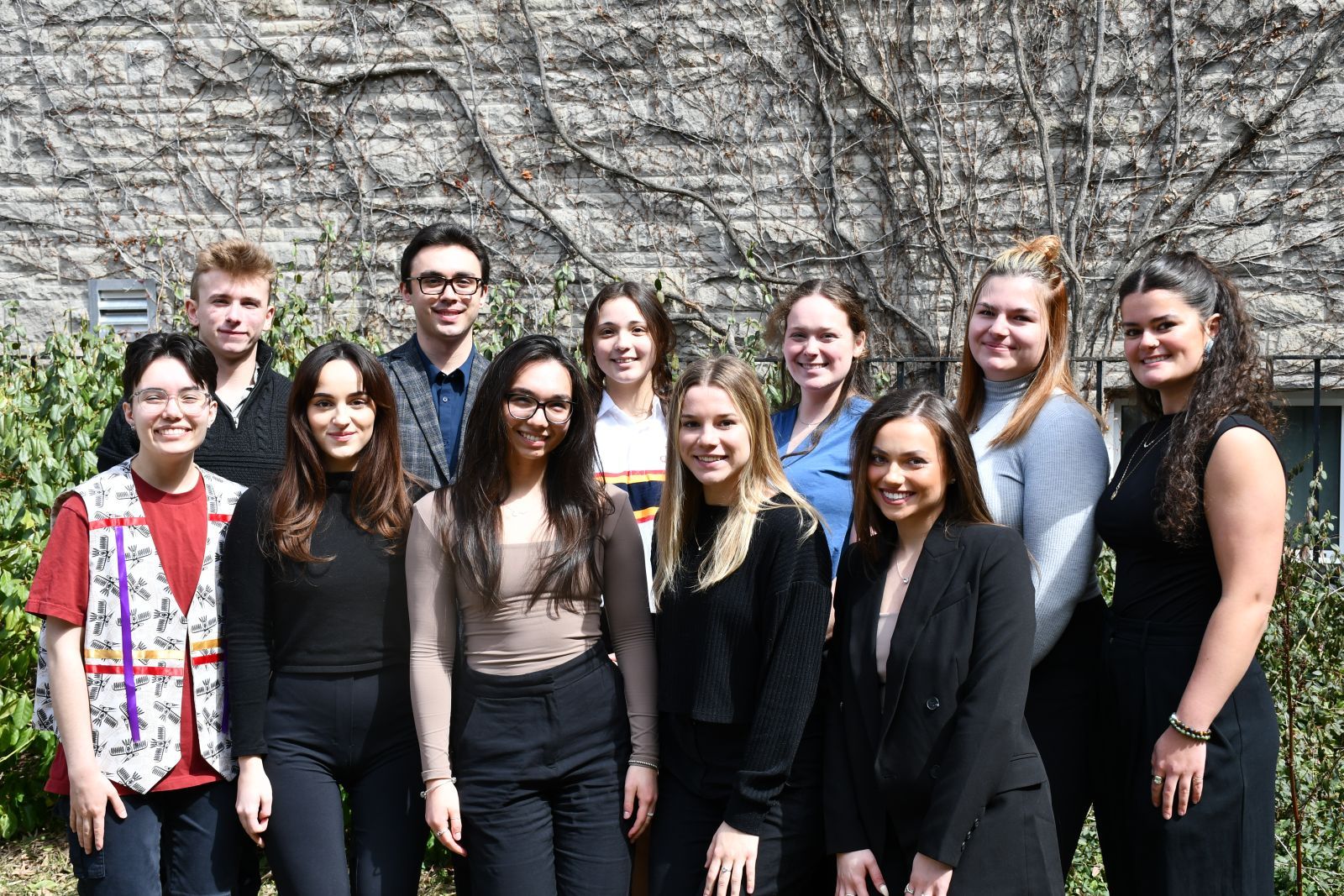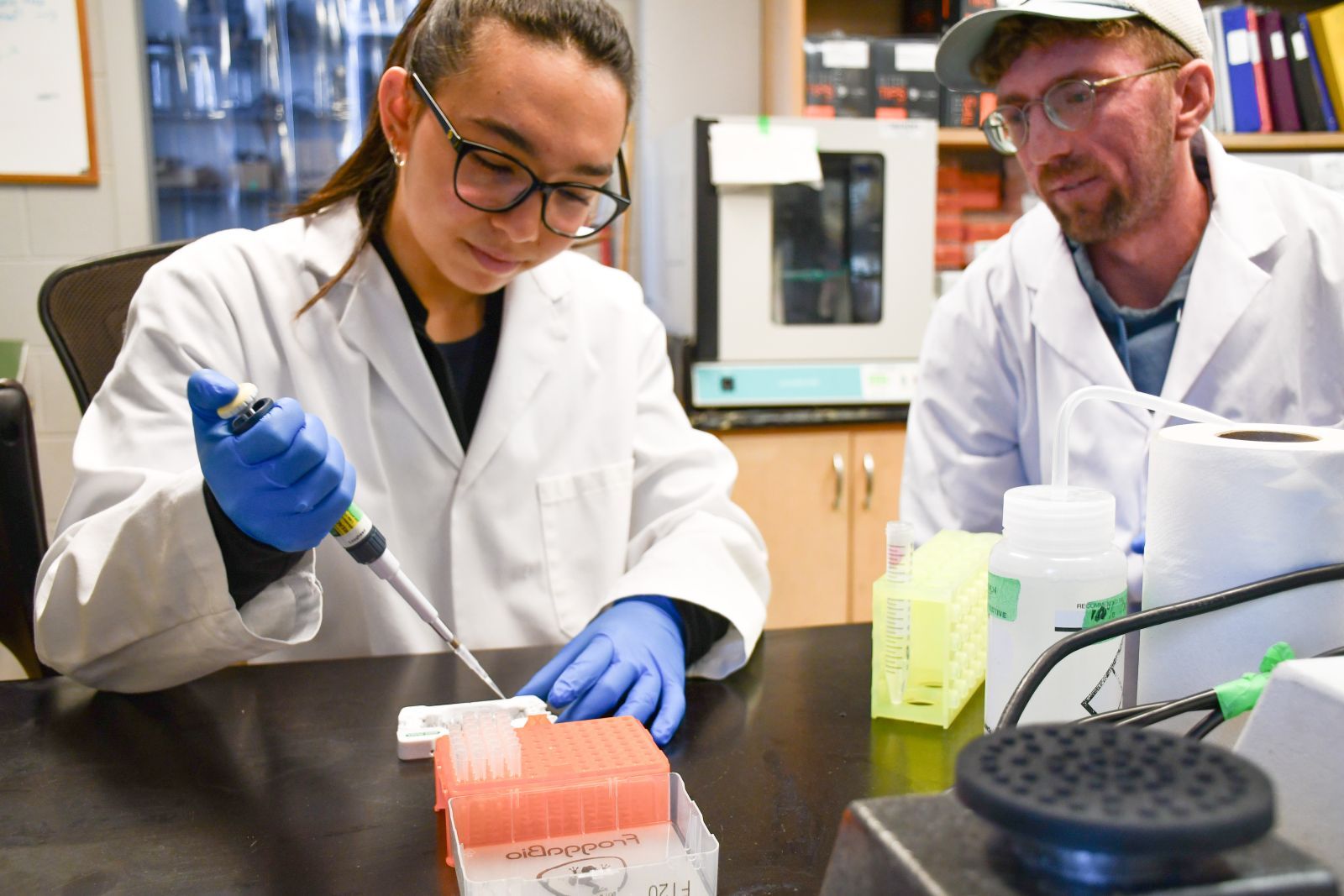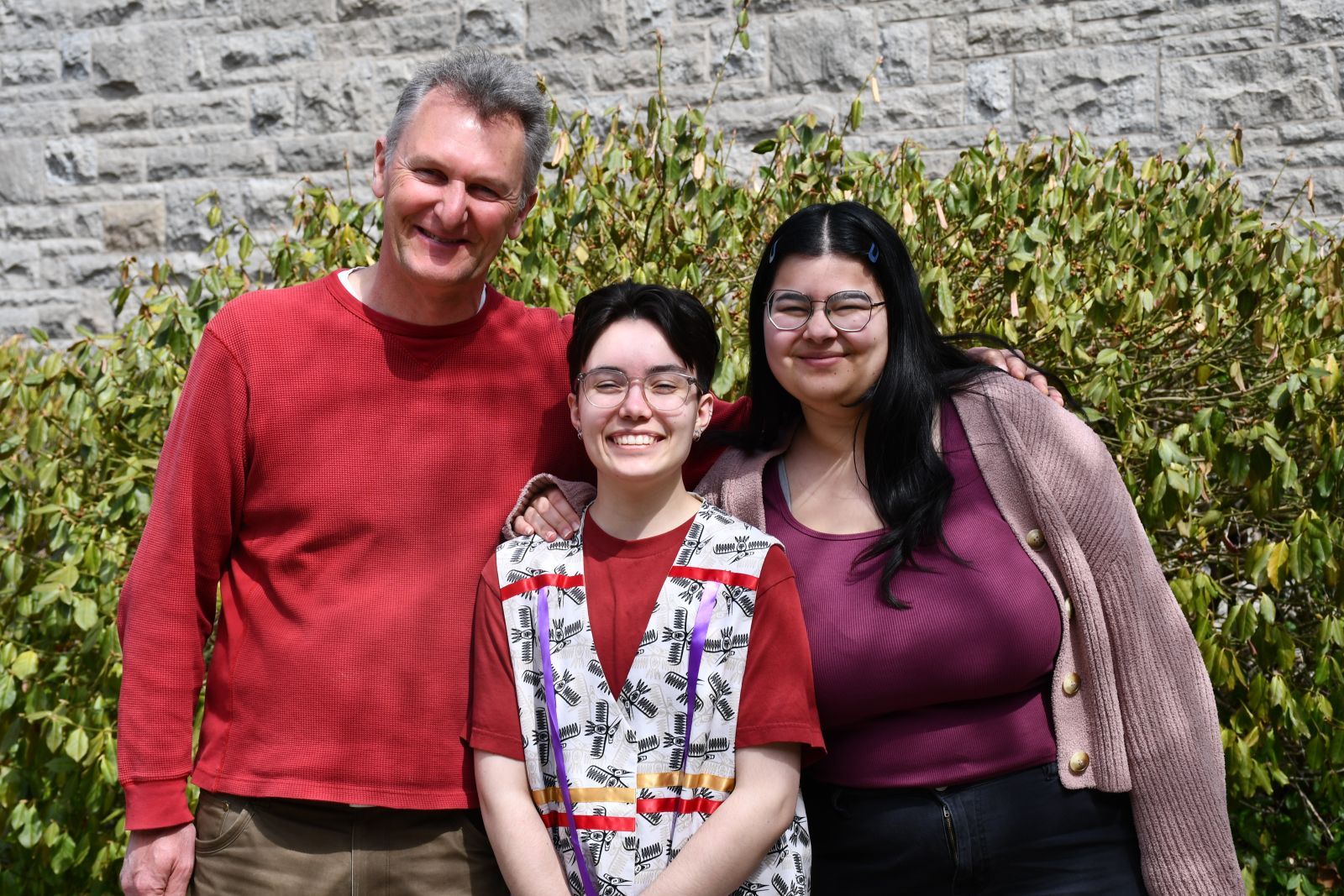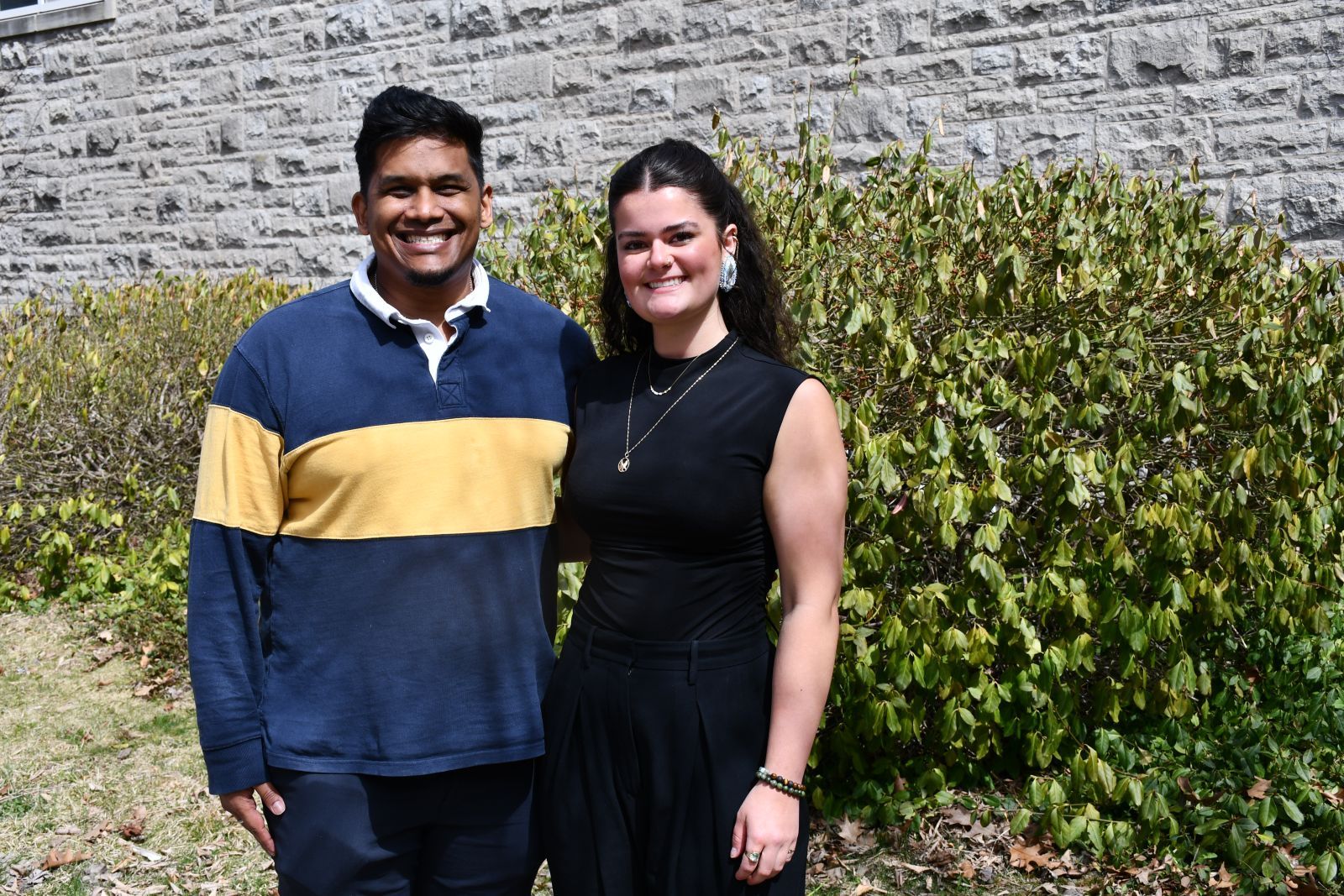
Top left to right: Mckinley Broomhead, Dylan Rietze, Katrina Reimer, Kate Sheppard, Jenna Black, Ellery Ingersoll-McNeely. Bottom L-R Faith Hines, Taryn Keenan, Rachel DeCicco, Claire Lamothe and Camryn Martin.

Rachel DeCicco (l) worked in the lab of Dr. Stephen Lougheed (Biology) under the guidance of graduate student Stafford Maracle (r).

Paul Grogan (Biology), Faith Hines and Kira Henders.

Gerome Manson (School of Kinesiology and Health Studies) and Ellery Ingersoll-McNeely.

Second year student Dylan Rietze (middle) worked with both Drs. Christian Muise (l) and Ting Hu (r) (School of Computing).
A unique undergraduate opportunity
A group of Faculty of Arts and Science students recently completed the STEM Indigenous Academics (STEMInA) Research Experience Program. Undergraduate students in the program were paired with leading researchers from Smith Engineering and FAS and, over the past year, had the chance to complete research projects in their laboratories.
STEMInA is an academic support and community-building program for Indigenous students enrolled in Science, Technology, Engineering, and Math (STEM) -based undergraduate degree programs at Queen’s University.
Third year Life Sciences student Rachel DeCicco worked in the lab of Dr. Stephen Lougheed (Biology) under the guidance of graduate student Stafford Maracle. She’s been involved in the STEMInA program since her first year at the university.
“This program was what encouraged me to accept my offer from Queen’s,” she says. “There is a strong Indigenous community here and a lot of resources and opportunities that are there to help the transition into university.”
Her research involves using a unique polymerase chain reaction (PRC) technique (a technique used in the lab to make millions of copies of a particular section of DNA) to detect American eel DNA within environmental samples. She’s also shadowing Dr. Lougheed and his work on grizzly bear and polar bear DNA. She then moved onto her own project.
Thanks to support from STEMInA, Rachel had the opportunity to present this research at the American Indian Science and Engineering Society (AISES) conference in Vancouver AISES is a non-profit professional association with the goal of substantially increasing American Indian, Alaskan Native, Native Hawaiian, Pacific Islander, First Nation and other indigenous peoples of North America representation in the fields of science, technology, engineering, math (STEM) and other related disciplines.
“The conference was sponsored by Apple and other notable companies and being able to present was an opportunity STEMInA presented me with that I wouldn't have normally had. This work on my research project has provided me with invaluable learning opportunities and experiences undergraduate students wouldn’t normally have.”
Second year student Dylan Rietze worked with both Drs. Christian Muise and Ting Hu (School of Computing) for his Research Experience program. His project centered on unraveling the mechanisms of antibiotic resistance—aiming to shed light on one of today’s most daunting global health dilemmas. By analyzing the Comprehensive Antibiotic Resistance Database (CARD) he identified potential methods to counteract and manage antibiotic resistance effectively.
“I would say this program has met my expectations and also exceeded it in some ways,” Dylan says. “I didn’t really know what to expect as I’ve only taken a few computing classes in my first year, but it’s really been much more than I thought it would be. It’s pushed me to try new things and explore new ways of using genetics and coding. I would absolutely recommend this to other students which will provide them with the opportunity to step out of their normal lives and try something unique.”
Dr. Muise says now that the program is finished, he’d like to debrief on how the program could run again next year. “Three hours a week from the students is not too overwhelming and I don’t think we expected too much of them. It’s kind of exciting how we can reimagine this year over year. This program is really a launching pad for undergraduate students.”
He also believes some of the students involved will join the labs as graduate students, with the Research Experience Program providing a unique opportunity to mentor students on a one-on-one basis.
“I would absolutely love to get involved in this program again,” Dr. Hu says. “I’m happy I can provide guidance and expertise to help the students learn more about research and help them succeed. It’s exciting for me, especially to work with motivated students like Dylan.”
Dylan also joined Rachel at the AISES conference. “I was kind of shocked with the opportunities I had there. I had a chance to meet with different companies and I made connections which could lead to something down the road.”
At the event signifying the end of the program for this year, STEMInA program coordinator Kayla Bourdeau took a moment to talk about the success of the Research Experience Program.
“I thought the event went great, so proud of all the students and their presentations and growth and I am grateful for the researchers who took the time to mentor the students. Absolutely, the plan is to run the Research Experience Program again next year. You never know where an opportunity will lead you and how different experiences will challenge you to step out of your comfort zone and allow you to grow academically and personally.”

